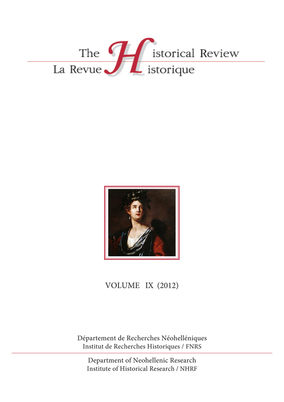Oracular Prophecy and the Politics of Toppling Ottoman Rule in South-East Europe
Part of : The Historical Review ; Vol.8, No.1, 2011, pages 95-116
Issue:
Pages:
95-116
Author:
Abstract:
This article argues that, after the fall of Constantinople, the religious belief system of the Orthodox community legitimized and, at the same time, challenged the Ottoman status quo. Te prophetic and apocalyptic beliefs of the subjugated community were largely responsible for the ambivalence. Tese beliefs entertained subversive ideas on a communal level that counterbalanced the feelings of accommodation with Ottoman rule. In the age of revolution, the prophetic and apocalyptic beliefs under consideration interacted with the ideals of nationalism, producing noticeable political results. Te first nationalistic movement to erupt in South-East Europe, the Greek one, took advantage of this old set of collective beliefs in order to increase the social dissemination of its own modern and secular political ends. Te article first traces the course of a medieval tradition of prophecy of religio-political character, which existed as part of the general religious framework of Orthodox belief in the Eastern Roman Empire. It then goes on to highlight the social function of the tradition after the fall of Constantinople, as a repertoire of shared mythic beliefs with status reversal properties assuring the faithful that, eventually, the condition of collective subjection would be reversed. Finally, the age of modernity is considered, all the while arguing that the tradition proved advantageous to Greek nationalism insofar as it encapsulated collective beliefs which, thanks to their status reversal meanings and their intrinsic capability for reinterpretation, were useful for making the Orthodox masses more receptive to the nationalist call to arms.
Subject (LC):
Notes:
856:https://ejournals.epublishing.ekt.gr/index.php/historicalReview/article/view/4059, DOI: http://dx.doi.org/10.12681/hr.278
Electronic Resources:




